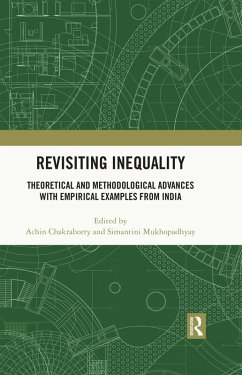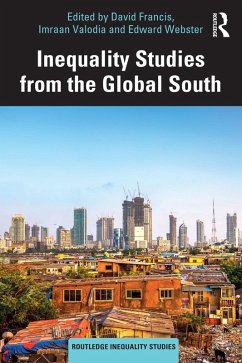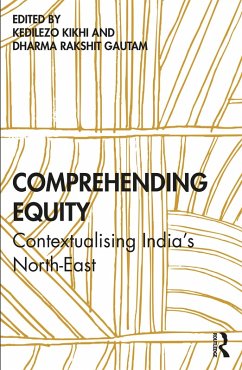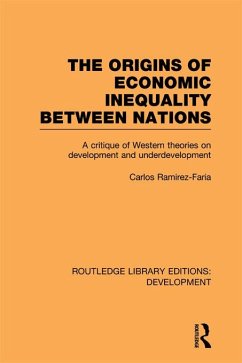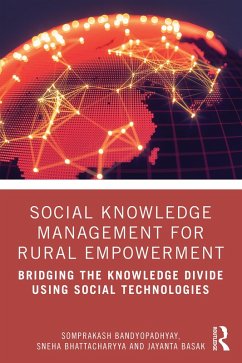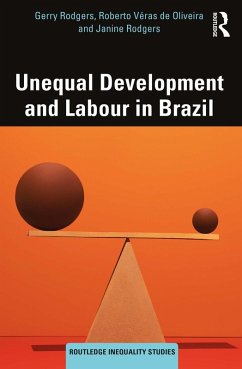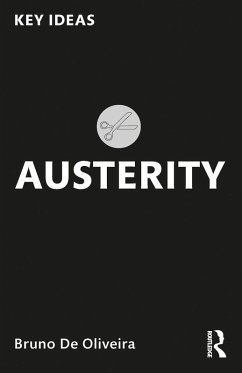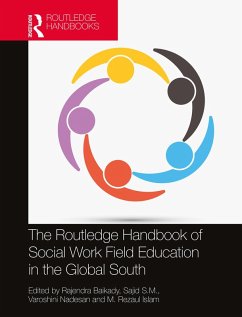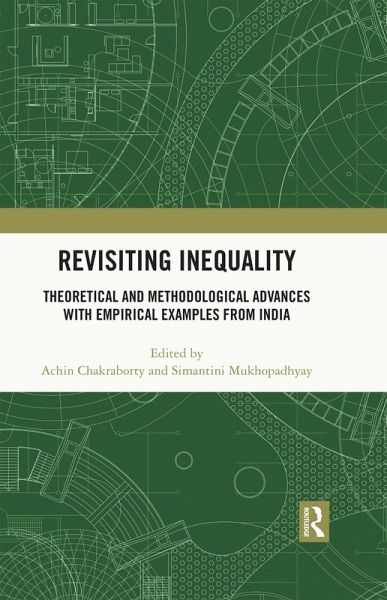
Revisiting Inequality (eBook, ePUB)
Theoretical and Methodological Advances with Empirical Examples from India
Redaktion: Chakraborty, Achin; Mukhopadhyay, Simantini
Versandkostenfrei!
Sofort per Download lieferbar
42,95 €
inkl. MwSt.
Weitere Ausgaben:

PAYBACK Punkte
21 °P sammeln!
This volume discusses the current state of knowledge on the conceptual understanding of inequality. The book poses a range of empirical puzzles in the Indian context and examines inequalities across categories of the region of residence, caste, and sex, using a fascinating range of outcome indicators, comprising education, health, earnings, self-employment, and crime.The empirical chapters of this volume use various large-scale secondary data sources to expose the deep-rooted, structural inequalities in the Indian society. It answers some of the pertinent questions around inequality such as wh...
This volume discusses the current state of knowledge on the conceptual understanding of inequality. The book poses a range of empirical puzzles in the Indian context and examines inequalities across categories of the region of residence, caste, and sex, using a fascinating range of outcome indicators, comprising education, health, earnings, self-employment, and crime.
The empirical chapters of this volume use various large-scale secondary data sources to expose the deep-rooted, structural inequalities in the Indian society. It answers some of the pertinent questions around inequality such as why do the backward regions of India continue to remain backward, both in terms of economic and human development indicators? Why do enterprises owned by backward caste individuals have systematically lower business earnings? Are backward castes and women more likely to face crime when their relative status improves? How do the circumstances that children find given at birth influence their learning outcomes? etc.
The book will be of interest to teachers, students, and researchers of economics of education, development studies, development economics, and Indian economics. It will also be useful for policymakers, academicians, and anyone curious to learn about inequality.
The empirical chapters of this volume use various large-scale secondary data sources to expose the deep-rooted, structural inequalities in the Indian society. It answers some of the pertinent questions around inequality such as why do the backward regions of India continue to remain backward, both in terms of economic and human development indicators? Why do enterprises owned by backward caste individuals have systematically lower business earnings? Are backward castes and women more likely to face crime when their relative status improves? How do the circumstances that children find given at birth influence their learning outcomes? etc.
The book will be of interest to teachers, students, and researchers of economics of education, development studies, development economics, and Indian economics. It will also be useful for policymakers, academicians, and anyone curious to learn about inequality.
Dieser Download kann aus rechtlichen Gründen nur mit Rechnungsadresse in A, B, BG, CY, CZ, D, DK, EW, E, FIN, F, GR, HR, H, IRL, I, LT, L, LR, M, NL, PL, P, R, S, SLO, SK ausgeliefert werden.




